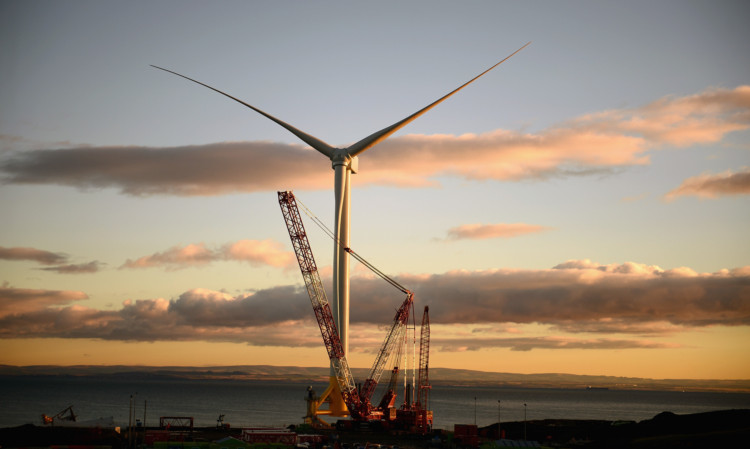Finance Secretary John Swinney has expressed confidence that an independent Scotland would have no trouble selling its excess renewable energy to England.
The answer was given by Mr Swinney as he responded to a question by anti-windfarm campaigner Graham Lang, who challenged whether Scotland could sustain its green energy ambitions in the event of the break-up of the UK.
Mr Lang, who is from Fife and is the chairman of anti-windfarm group Scotland Against Spin, said: “In Scotland we have an energy policy that’s, really, predicated on having 100% renewable energy by 2020. At the moment, that means that a unit per kilowatt hour of electricity costs £100 £50 of that is wholesale price and £50 is subsidy.
“The subsidy is shared among all citizens of the UK. If there was an independent Scotland, it would seem to me that it would be very likely that all this cost would fall on the citizens of Scotland. That would be a huge burden to bear. Another point about this is, where do we sell our electricity when we have this huge capacity of renewables will England buy it? Surely that won’t necessarily be the case in a separate country?”
Responding to Mr Lang, Mr Swinney said: “The point that is made is a very important point, as it gets to the heart of continuity of energy supply; and it’s not a debate that takes place in isolation, it’s within the context of the wider commitments that all states have to make in terms of their international commitments to carbon emissions. One of the principle sources of carbon emissions is our energy generation.
“Whatever happens about the constitutional future of Scotland, the UK, all of us who live in these islands, will have commitments that we have to fulfil, internationally, to reduce our carbon emissions.
“And the people of England whether Scotland becomes independent or not are still going to have to decarbonise their energy consumption. “They can do it in two ways: they can do it by building extensive renewable energy capabilities in England, which the current UK Government seems unlikely to enable to happen given the chaos they have inflicted on the energy markets or they can purchase renewable energy produced in Scotland, which we have a significant … opportunity to generate renewable energy.”
Mr Swinney added: “Now, I know renewable energy is a divisive subject. My view is, I am very supportive of renewable energy. I think it is our duty, as a society with the enormous environmental pressures we face, that we should use the electricity-generation methods and opportunities that we have as a country and they are principally around renewable energy.
“I think it is entirely conceivable that the people in the rest of the UK if Scotland becomes independent will purchase and obtain that from Scotland because the physical infrastructure enables it to happen.”
Mid Scotland and Fife Conservative MSP Murdo Fraser, speaking on behalf of Better Together, said of Mr Lang’s point: “I think it’s a very fair question. It’s a point I have made myself on a number of occasions.
“You should take with a pinch of salt anything we say. But some very interesting comments come just this week from Professor John Kay who said that the SNP’s green energy vision is a fantasy that’s what he actually said in a speech.
“He went on to say that the subsidy from these activities, which would have to come from the rest of the UK, is something that can’t be assumed would continue. He says there’s a major problem.”
